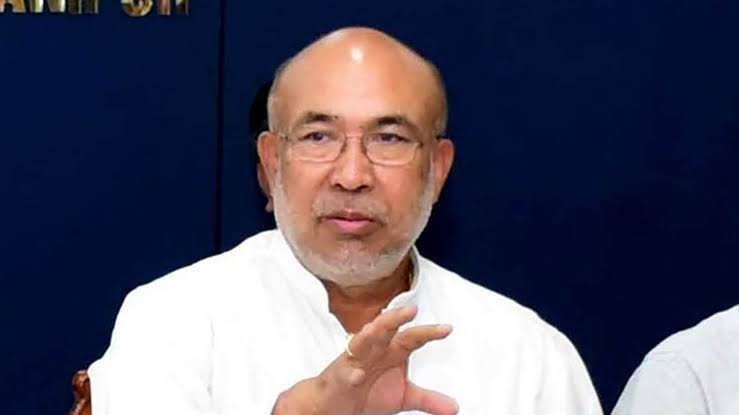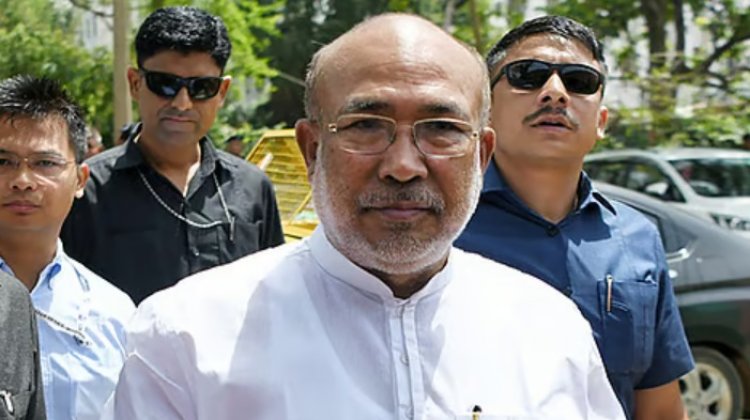Manipur Chief Minister N. Biren Singh has stepped down from his position, marking a significant shift in the state’s political landscape. His resignation comes two years after ethnic violence erupted in Manipur, creating deep divisions and unrest. The decision appears to be an attempt to address growing dissent within the state BJP and to stabilize the government ahead of a possible no-confidence motion from the Congress.
 Singh formally submitted his resignation to the Governor after extensive discussions with the BJP’s central leadership. Despite the BJP maintaining a majority in the assembly, tensions had been rising due to the withdrawal of support from Conrad Sangma’s National People’s Party. The prospect of a floor test loomed large, and there was growing speculation that several MLAs, dissatisfied with Singh’s leadership, might defy the party whip. To prevent further turmoil, Singh took the step to exit gracefully rather than risk an internal rebellion.
Singh formally submitted his resignation to the Governor after extensive discussions with the BJP’s central leadership. Despite the BJP maintaining a majority in the assembly, tensions had been rising due to the withdrawal of support from Conrad Sangma’s National People’s Party. The prospect of a floor test loomed large, and there was growing speculation that several MLAs, dissatisfied with Singh’s leadership, might defy the party whip. To prevent further turmoil, Singh took the step to exit gracefully rather than risk an internal rebellion.
Earlier in the day, Singh traveled to Delhi, where he met with BJP president J.P. Nadda and Union Home Minister Amit Shah. Reports suggest that at least 12 MLAs had been actively pushing for a change in leadership, with another six legislators remaining undecided. The discord within the party had been evident for some time, with Speaker Thokchom Satyabrata Singh reportedly having differences with the Chief Minister. Some of the dissident legislators had even approached Amit Shah directly to voice their concerns.
The immediate trigger for this growing opposition seems to be allegations linking Singh to the ethnic violence that broke out in May 2023. A member of the Kuki community recently petitioned the Supreme Court, accusing the outgoing Chief Minister of instigating the unrest. The claims are reportedly based on leaked audio tapes, which an independent forensic analysis by Truth Labs has found to be a 93% match with Singh’s voice. The Supreme Court has now sought an official report from the Central Forensic Science Laboratory to verify the findings.
Amid these tensions, the BJP leadership appears to have prioritized damage control, especially following its recent electoral successes in Maharashtra, Haryana, and Delhi. A major crisis in Manipur could have overshadowed these political gains. Singh’s resignation, therefore, is seen as a strategic move to prevent a split within the party and maintain stability in the region.
For Manipur, this development raises important questions about the future leadership of the state and whether it will bring an end to the turmoil that has plagued it for the past two years. While Singh’s departure may ease immediate tensions, the underlying ethnic and political fractures remain, making the road ahead uncertain.



